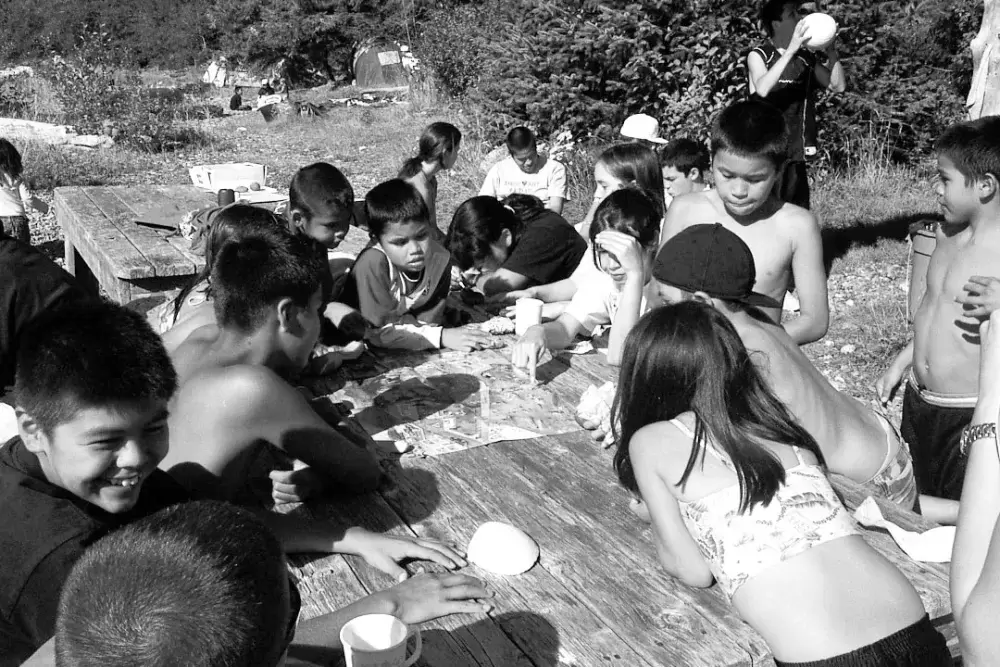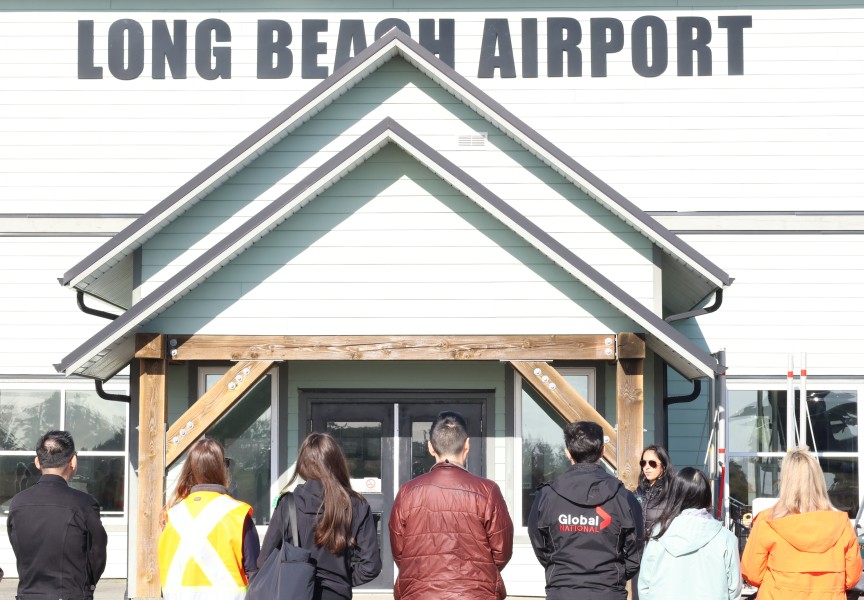Over the past few months, BC Hydro’s Remote Community Electrification (RCE) program team has been in discussions with the Hesquiaht First Nation, a remote community north of Tofino, to become their electric utility provider. As part of the program, on Aug. 27 to Aug. 29, Hesquiaht Administration and BC Hydro partnered to send 23 children and youths, ages five to19, to the remote Hooksum Outdoor School in Iusuk, Hesquiaht Harbour, north of Tofino, to learn life skills and develop traditional knowledge.
Eager to enjoy the last few days of summer before school, the children piled into Chief Joe’s boat to go to camp. As he was driving, he showed them their traditional territory and told stories about their land and the ancestors who lived there.
Each day of the three-day adventure was busy. Beach games, hiking and kayaking to the lake, swimming, berry picking, hiking to the eagle’s nest and waterfall, fishing, surfing and longhouse games were on the agenda.
In the middle of this busy schedule, BC Hydro RCE team, including myself and Grietje Van Dijk, delivered an “Energy Detectives” program to educate its future customers about energy and conservation.
Away from easy access to electricity, young energy detectives learned how precious energy is. So they looked for ways to capture it. The rain didn’t stop the kids from building a wind-speed measurement tool to see if there is potential for wind energy at Iusuk. They also looked for ways to save energy. Card games, crossword puzzles, board games and fun quizzes provided clues.
The young energy detectives “energized” not only the camp staff, but also some parents who were supervising the little ones. By the end of the three-day camp the kids were drawing posters on what they learned.
“Can I bring it home?” asked Jacine, showing her poster on how to save energy. Power Smart education is destined to continue.
“Can you come to our community school, once the school year starts to continue the Energy Detectives program?” asked Louie Sabbas, Hesquiaht First Nation’s senior operation and maintenance staff. The BC Hydro team plans to come back in November to teach the young generation to discover hidden ways to save energy in their school and homes.
“Our goal is to create a culture of energy conservation in tomorrow’s BC Hydro customers,” said Nick Hawley, BC Hydro Remote Community Electrification program manager. “Through such sessions we start to demonstrate to the communities that they can trust us, and so we build relationships and learn about the communities to which we offer electric utility services.”
“It’s important for us to make sure BC Hydro knows who we are as a community, before becoming our electric utility provider. Spending time with the kids and the community members at the camp was a good way for BC Hydro to learn about our culture and values,” said Ron Martin, Hesquiaht First Nation manager.
“Energy Detectives” camp also supports the BC Hydro in Schools initiative, whereby BC Hydro offers to go to schools and present educational sessions on energy, electricity, safety and conservation. Through these free high-energy interactive workshops, students will identify how their classrooms and schools use energy, conduct energy investigations of their schools, and plan and deliver energy conservation campaigns.
BC Hydro also offers teachers the training and resources needed to incorporate its energy investigation and conservation campaigns into their teaching materials and lessons.
BC Hydro’s Remote Community Electrification program provides assistance to eligible remote communities interested in receiving electrical utility service at the same rates and standards as other customers in BC Hydro’s non-integrated areas (that is, areas not connected to BC Hydro’s main grid).
By Katherine Rossokha







